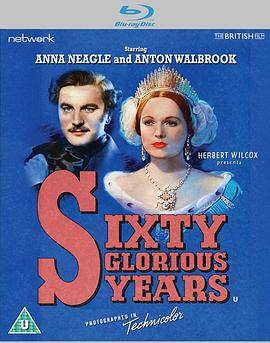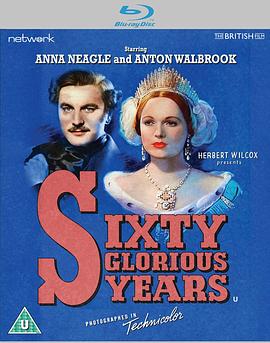煤气灯下
Twenty years ago, old Mrs. Barlow was killed in her home at 12, Pimlico Square for her priceless rubies. The murderer searched the whole house without finding them, then disappeared. The house has been empty since then, but now Paul and Bella Mallen move into the apartment. Bella Mallen suffers from forgetfulness and nervousness - at least that is what her husband tells her. An elderly horse wrangler, B.G. Rough worked as a policeman twenty years ago and still remembers the unsolved case. He notices that Mr. Mallen looks just like Louis Barre, Mrs. Barlow's nephew. And why does Mr. Mallen so mysteriously leave every night just to go into the apartment next door, nr. 14?
| 演员 | Anton Walbrook / Diana Wynyard / Frank Pettingell |
| 导演 | Thorold Dickinson |
| 地区 | 英国 |
| 语言 | 英语 |
| 类型 | 恐怖片 |
| 豆瓣 | 7.3 |
| 年份 | 1940 |
| 更新 | 2023-04-04 |
相关影视推荐
红菱艳
莫伊拉·希勒,安东·沃尔布鲁克 Anton Walbrook,马留斯·戈尔林
佩吉(莫伊拉·希勒 Moira Shearer 饰)是一名很有天赋的芭蕾舞演员,她对芭蕾舞的热爱让她觉得她生来便是为了舞蹈。她参加了芭蕾舞剧《红菱艳》的演出,在剧中,她扮演那个穿上红鞋一直舞蹈到死的舞女,她的演出获得了业界的一致好评,她的演艺事业就此扶摇直上。之后,她结识了作曲家朱利安(马留斯·戈尔林 Marius Goring 饰)并且迅速坠入了爱河。为了所爱的人,佩吉放弃了自己的事业,但婚后平静的生活令她无法忍受,似乎总有一种魔力在召唤她穿上舞鞋翩然起舞。佩吉听从了内心的召唤,她离开了朱利安重新回到了舞台,但渐渐的,她想起了自己曾经扮演过的那个穿着红鞋的舞女,她觉得她们的身影正在慢慢重叠,不安的佩吉猛然醒悟,自己生命中最重要的并非舞蹈而是家庭,她冲出剧院想要重拾朱利安的爱情,但一辆火车从天而降,终结了她年轻的生命。 影片荣获1949年奥斯卡最佳配乐及最佳艺术指导奖。
荣耀六十年
Anna Neagle,Anton Walbrook,C. Aubrey Smith,Walter Rilla
Sixty Glorious Years is an exercise in the creation of iconography, both for Victoria and its star, Anna Neagle (who subsequently became known as 'Regal Neagle'). Just as Elizabeth I commissioned artists to create flattering iconic images for public consumption, so this film performs a similar function, for Neagle is more beautiful than the real life Victoria. Controversial events (such as the 'Irish problem') are omitted and unpleasant aspects of Victoria's character (her petulance, arrogance, favouritism and 'right to privilege') are glossed over as endearing little 'whims'. Albert acts as a moderating influence when she goes too far. The film followed a year after the highly successful Victoria the Great (d. Herbert Wilcox, 1937). Again the screenplay is by Miles Malleson and Robert Vansittart, and many of the supporting cast (the cream of acting talent of period) repeat their roles, this time for the colour cameras. This was the first full length Technicolor film of cinematographer Freddie Young, who captures the spectacle of royal weddings, grand balls and opulent interiors, with scenes actually filmed at royal palaces. Vivid battle scenes, set in Alexander Korda's empire territory (Sevastopol and the Sudan), rival those in The Four Feathers (d. Zoltan Korda 1939). The title music sets the tone: a regal choir sings over a shot of the crown. Elgar's 1901 'Pomp and Circumstance' march is heard during the diamond jubilee celebrations and, as Victoria's coffin lies in state, the film concludes with Anthony Collins' stately music accompanied by the text of Rudyard Kipling's 'Lest we forget'. Combined with the emotional appeal of scenes of Victoria connecting with her 'ordinary folk', this is stirring stuff. The film connects with contemporary events of 1938. The release of two celebratory royal films was intended to boost public affection for the monarchy in the wake of Edward VIII's abdication. Anglo-German relations were another touchy subject. With another war on the horizon, influential voices wanted appeasement, and the film could be seen to fit that agenda. Victoria herself was of mainly German descent, nicknamed 'the grandmother of Europe', while Albert is a 'good German', charmingly played by Anton Walbrook as a cultured, decent man. Sixty Glorious Years now seems unduly formal and reverential. Had movies existed during Victoria's reign (they only emerged at the end) this might have been the kind of film produced. Unlike Mrs Brown (d. John Madden, 1997), it is all so very 'Victorian'. Roger Philip Mellor
荣耀六十年1938
Anna Neagle,Anton Walbrook,C. Aubrey Smith,Walter Rilla
Sixty Glorious Years is an exercise in the creation of iconography, both for Victoria and its star, Anna Neagle (who subsequently became known as 'Regal Neagle'). Just as Elizabeth I commissioned artists to create flattering iconic images for public consumption, so this film performs a similar function, for Neagle is more beautiful than the real life Victoria. Controversial events (such as the 'Irish problem') are omitted and unpleasant aspects of Victoria's character (her petulance, arrogance, favouritism and 'right to privilege') are glossed over as endearing little 'whims'. Albert acts as a moderating influence when she goes too far. The film followed a year after the highly successful Victoria the Great (d. Herbert Wilcox, 1937). Again the screenplay is by Miles Malleson and Robert Vansittart, and many of the supporting cast (the cream of acting talent of period) repeat their roles, this time for the colour cameras. This was the first full length Technicolor film of cinematographer Freddie Young, who captures the spectacle of royal weddings, grand balls and opulent interiors, with scenes actually filmed at royal palaces. Vivid battle scenes, set in Alexander Korda's empire territory (Sevastopol and the Sudan), rival those in The Four Feathers (d. Zoltan Korda 1939). The title music sets the tone: a regal choir sings over a shot of the crown. Elgar's 1901 'Pomp and Circumstance' march is heard during the diamond jubilee celebrations and, as Victoria's coffin lies in state, the film concludes with Anthony Collins' stately music accompanied by the text of Rudyard Kipling's 'Lest we forget'. Combined with the emotional appeal of scenes of Victoria connecting with her 'ordinary folk', this is stirring stuff. The film connects with contemporary events of 1938. The release of two celebratory royal films was intended to boost public affection for the monarchy in the wake of Edward VIII's abdication. Anglo-German relations were another touchy subject. With another war on the horizon, influential voices wanted appeasement, and the film could be seen to fit that agenda. Victoria herself was of mainly German descent, nicknamed 'the grandmother of Europe', while Albert is a 'good German', charmingly played by Anton Walbrook as a cultured, decent man. Sixty Glorious Years now seems unduly formal and reverential. Had movies existed during Victoria's reign (they only emerged at the end) this might have been the kind of film produced. Unlike Mrs Brown (d. John Madden, 1997), it is all so very 'Victorian'. Roger Philip Mellor



